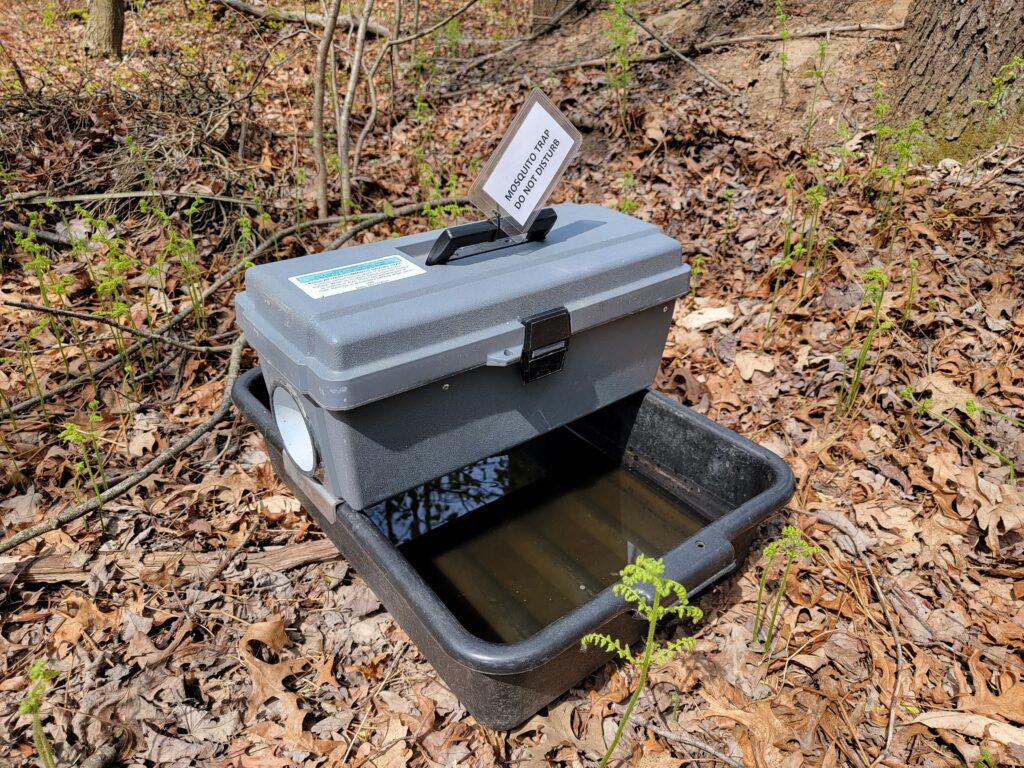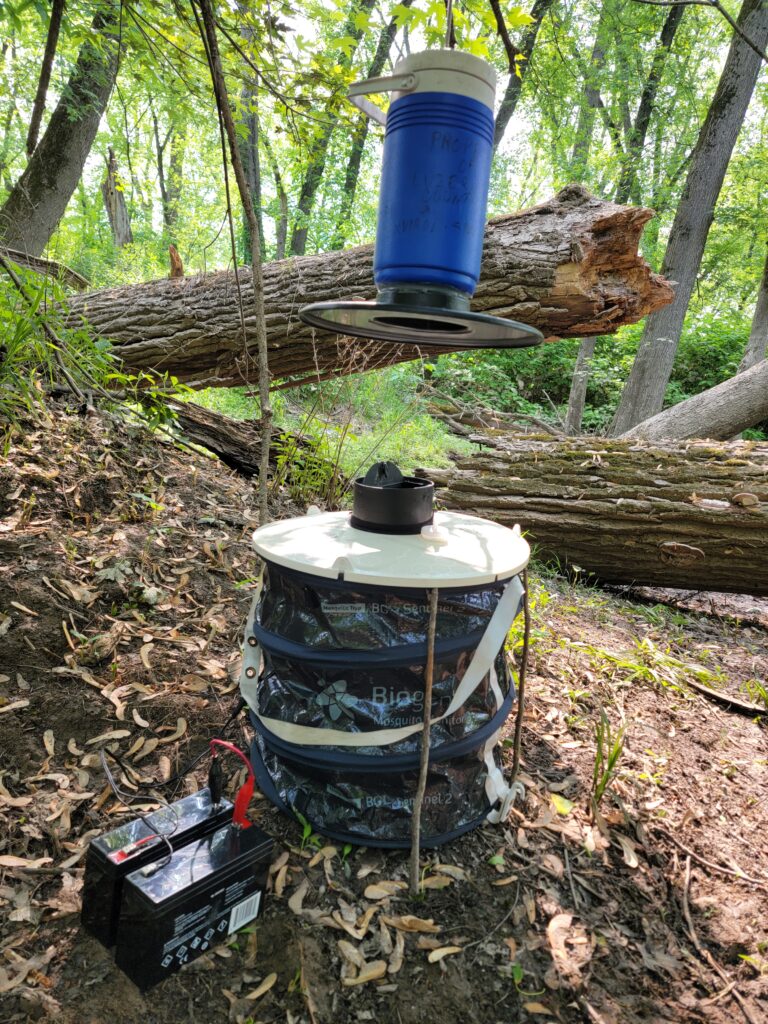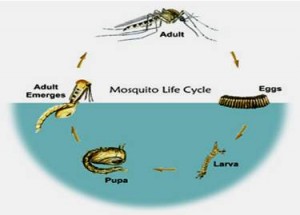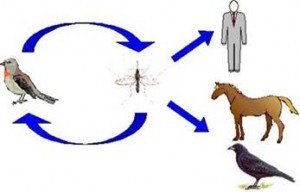Mosquito-borne Disease Control
In 1999, West Nile Virus was detected for the first time in the United States in New York City. This led to the startup of a multi-agency network for West Nile Virus surveillance and prevention in Pennsylvania. Luzerne County, through it’s Environmental Special Projects Department, had participated in the state-funded West Nile Virus (WNV) Program (now known as the Mosquito-borne Disease Control Program) since 2000 when Pennsylvania started its program.
In 2010, the Luzerne Conservation District began administering the Mosquito-borne Disease Control (MDC) Program in Luzerne County. Staff members in the district’s MDC Program conduct efforts to reduce the risk of mosquito-borne diseases. An integrated mosquito management (IMM) program is the most effective way to prevent and control mosquito-borne disease. Such a program includes the following: surveillance, the reduction of mosquito breeding sites, community outreach and public education, and the ability to use chemical and biological methods to control both mosquito larvae and adult mosquitoes. Control measures, including the use of chemical adulticides are based on surveillance data and the risk of human disease.
The MDC Program runs from early April to late October, which coincides with the active mosquito season. WNV is typically transmitted by the bite of an infected mosquito; see WNV Transmission Cycle illustration below in Figure 2.
WNV Indicators
Birds can be an important WNV indicator. The MDC Program staff can collect birds (only Corvids, Raptors and Blue Jays) that are without an obvious cause of death and have been dead less than 48 hours. To report a dead bird please call the Luzerne Conservation District at (570) 674-7991 or visit DEP’s Vector Management website for instructions. Program staff will determine if the bird will be collected for tracking purposes and their eligibility for virus testing. It is extremely important not to touch a dead bird with your bare hands! Instead use gloves, shovel, or a plastic bag when handling dead birds!
Surveillance
The purpose of mosquito surveillance is to monitor levels of mosquito activity and where virus transmission is or could be occurring. District staff will collect adult and larval samples at least twice a week from April through October at various sites throughout Luzerne County. Collected samples are sent to DEP in Harrisburg for identification and testing.
Types of mosquito traps pictured below: At left is a Gravid Mosquito Trap and at right is a BG Sentinel Trap. If you see these important surveillance tools in your community, please do not disturb them.


Help Fight Mosquitoes!
- Empty containers that collect and hold water (including tires, tin cans, buckets, tarps, etc.)
- Empty & change water in bird baths, flower pot trays, cemetery urns, pet dishes, rain barrels, and wading pools
- Clean debris from rain gutters & keep swimming pools treated and circulating
- Drain or fill puddles with dirt
- Stock ornamental ponds with fish which will consume mosquito larvae
- Use mosquito repellents containing DEET when necessary and follow label directions and precautions carefully, especially with children!
- Make sure window and door screens are “bug tight”
- Horse Owners are encouraged to contact their veterinarian for more information on the Equine WNV Vaccine
*REMEMBER WATER SITTING LONGER THAN 4 DAYS CAN PRODUCE MOSQUITOES!*
Other Sources of Information:
PA Department of Environmental Protection
PA Department of Health 1-(877)-PA-HEALTH (724-3258)

